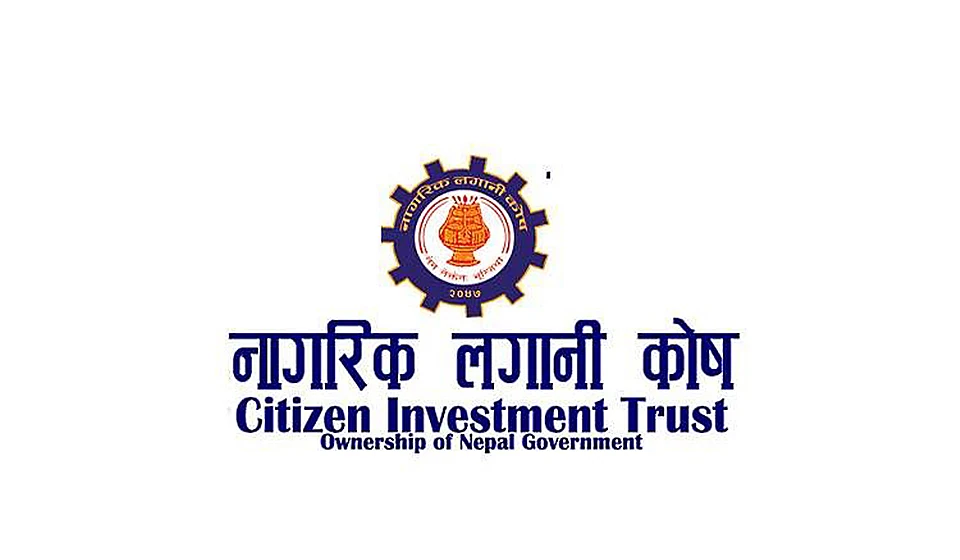Introduction:Citizen Investment Trust (CIT) in Nepal
Citizen Investment Trust (Nagarik Lagani Kosh), established as a statutory institute under Citizen Investment Trust Act, 2047, represents Nepal Government's initiative as a public financial organization. Since its establishment on March 18, 1991 (4th Chaitra, 2047 B.S.), CIT has been operating as an autonomous body, transforming Nepal's investment landscape through diverse financial products.
CIT serves as Nepal's premier investment platform, offering citizens secure pathways to wealth creation while contributing to national economic development. This comprehensive guide explores everything investors need to know about maximizing CIT opportunities.
Types of CIT Schemes Available in Nepal
1. Retirement Fund Schemes
The retirement fund operates through systematic monthly deductions from salaries, where organizations deposit the deducted amounts to designated collection centers through commercial banks and Nepal Rastra Bank branches.
Key Features:
- Monthly contribution-based system
- Employer-employee collaborative savings
- Government-backed security
- Long-term wealth accumulation
2. Mutual Fund Programs
CIT manages various mutual fund programs for both domestic and foreign investors to encourage saving and increase investment opportunities while contributing to the country's economic development.
Available Options:
- Open-ended mutual funds
- Close-ended investment schemes
- Unit-linked investment plans
- Sectoral investment funds
3. Voluntary Contribution Schemes
These schemes allow individuals to make additional contributions beyond mandatory deductions, providing flexibility for enhanced retirement planning.
Benefits Include:
- Flexible contribution amounts
- Tax advantages
- Compound growth opportunities
- Portfolio diversification
Administrative Process and Requirements
Document Requirements Checklist
|
Document Type |
Required For |
Validity |
|
Citizenship Certificate |
All Schemes |
Original + Copy |
|
Passport Size Photos |
Account Opening |
Recent (3 months) |
|
Employment Letter |
Retirement Fund |
Official Letterhead |
|
Bank Statement |
Contribution Schemes |
Last 3 months |
|
PAN/VAT Certificate |
Large Investments |
Current Year |
Step-by-Step Application Process
Phase 1: Documentation Preparation
- Gather required documents according to scheme type
- Ensure all documents are properly attested
- Prepare passport-sized photographs (recent)
- Obtain employer certification (for retirement schemes)
Phase 2: Application Submission
- Visit nearest CIT branch or authorized collection center
- Complete application forms with accurate information
- Submit documents for verification
- Pay initial contribution amount
- Receive acknowledgment receipt
Phase 3: Account Activation
- Document verification by CIT officials
- Account number generation and assignment
- Welcome kit delivery with account details
- Online access credential provisioning
Financial Planning with CIT
Investment Strategy Framework
Risk Assessment Matrix:
|
Investment Type |
Risk Level |
Expected Returns |
Suitable For |
|
Government Securities |
Low |
6-8% annually |
Conservative investors |
|
Corporate Bonds |
Medium |
8-12% annually |
Balanced portfolios |
|
Equity Investments |
High |
12-18% annually |
Growth-oriented investors |
|
Mixed Portfolio |
Medium |
9-14% annually |
Diversified approach |
Portfolio Allocation Recommendations
Conservative Approach (Age 50+):
- Government Securities: 60%
- Fixed Deposits: 25%
- Corporate Bonds: 15%
Balanced Approach (Age 30-50):
- Equity Investments: 40%
- Government Securities: 35%
- Corporate Bonds: 25%
Aggressive Approach (Age 18-30):
- Equity Investments: 60%
- Corporate Bonds: 25%
- Government Securities: 15%
Banking Process and Integration
Collection Centers and Banking Partners
CIT collaborates with major commercial banks across Nepal for seamless transactions:
Primary Banking Partners:
- Nepal Bank Limited
- Rastriya Banijya Bank
- Agricultural Development Bank
- Nabil Bank
- Standard Chartered Bank
Digital Banking Integration
CIT Smart Mobile App provides convenient and secure online access where users can view account balances, statements, locate branches with navigation, and access contribution details for Mutual Funds and various insurance funds.
Digital Services Include:
- Real-time balance inquiries
- Transaction history access
- Contribution tracking
- Branch locator services
- Statement downloads
Key Benefits of CIT Investment
Financial Advantages
1. Tax Benefits
- Contributions qualify for tax deductions
- Investment growth remains tax-deferred
- Withdrawal benefits under specific conditions
2. Guaranteed Returns
- Government backing ensures security
- Competitive interest rates
- Protection against market volatility
3. Compound Growth
- Long-term wealth accumulation
- Reinvestment of earnings
- Time-value money optimization
Social Security Benefits
Professional Groups Coverage:
- Civil Servant Insurance Fund
- Nepal Army Insurance Fund
- Teacher Insurance Fund
- Nepal Police Insurance Fund
- Armed Police Force Insurance Fund
Frequently Asked Questions (FAQs)
Q1: What is the minimum contribution amount for CIT schemes?
A: Minimum contributions vary by scheme type, typically starting from NPR 1,000 monthly for voluntary schemes and percentage-based deductions for employment-linked programs.
Q2: Can foreign nationals invest in CIT?
A: Yes, CIT welcomes both domestic and foreign investors in specific mutual fund programs, subject to regulatory compliance and documentation requirements.
Q3: How are CIT returns calculated?
A: Returns depend on investment performance, typically ranging from 6-18% annually based on portfolio composition and market conditions.
Q4: What happens to CIT investments during economic downturns?
A: Government backing provides stability, while diversified portfolios help minimize risks during economic volatility.
Q5: Can I withdraw CIT investments before maturity?
A: Early withdrawal options exist with specific terms and conditions, though penalties may apply depending on the scheme type and withdrawal timing.
Q6: How does CIT compare with commercial bank fixed deposits?
A: CIT typically offers higher returns than traditional fixed deposits while providing additional tax benefits and professional fund management.
Investment Tips and Best Practices
Maximizing CIT Returns
Strategic Approaches:
- Start Early: Begin contributions in your twenties for maximum compound growth
- Consistent Contributions: Maintain regular monthly investments regardless of market conditions
- Diversification: Spread investments across multiple CIT schemes
- Regular Reviews: Monitor performance and adjust strategies annually
Common Mistakes to Avoid
Financial Planning Errors:
- Inadequate contribution amounts
- Irregular payment patterns
- Neglecting beneficiary nominations
- Ignoring scheme terms and conditions
Conclusion: Building Wealth Through CIT
CIT's strategic investment in government securities, fixed deposits, shares, and debentures, combined with term and bridge financing, creates a robust foundation for Nepal's economic development. By choosing appropriate CIT schemes, investors can secure their financial future while contributing to national prosperity.
The combination of government backing, professional management, and diverse investment options makes CIT an excellent choice for Nepali citizens seeking reliable long-term wealth creation. Whether planning for retirement, seeking tax advantages, or building emergency funds, CIT provides comprehensive solutions tailored to diverse financial goals.
Take Action Today: Visit your nearest CIT branch or download the CIT Smart Mobile App to begin your investment journey. Remember, successful investing requires patience, consistency, and informed decision-making – qualities that CIT schemes reward handsomely over time.
This guide serves educational purposes and should not replace professional financial advice. Consult CIT officials or certified financial planners for personalized investment strategies.





-thumb.webp)


-thumb.webp)
